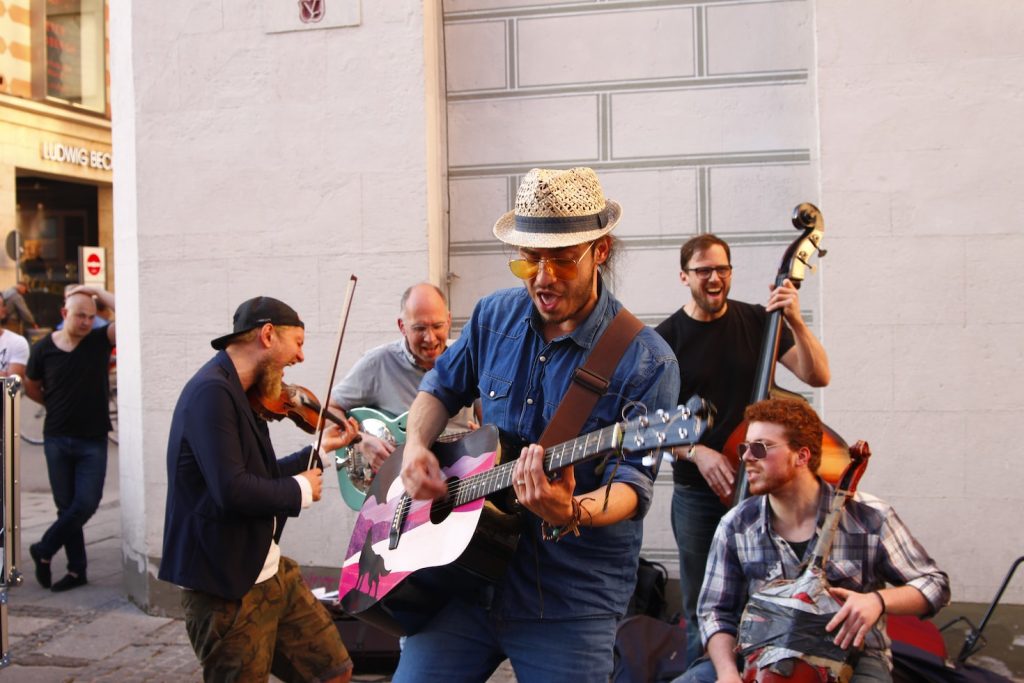Harmony of Knowledge: Celebrating Musicians with Higher Education Backgrounds
Harmony of Knowledge: Celebrating Musicians with Higher Education Backgrounds
The path of a musician is frequently stereotyped as one divergent from academic pursuits. However, numerous successful musicians have defied this stereotype, proving that the pursuit of higher education can coexist with and even enhance musical creativity. Their stories inspire us to look beyond the conventional boundaries that separate education and artistic endeavors.
These artists embody the spirit of versatility, showing that one can excel in both the academic arena and the creative world of music. Understanding this interplay between education and music is especially relevant for students who aspire to careers in the arts.
It’s a reminder that academic achievements do not hinder creative pursuits; rather, they can fortify them. For students juggling their coursework with music practice, resources like “Write my essays online by Studyfy” offer invaluable support, enabling them to strike a balance between their academic responsibilities and musical passions. It’s about finding harmony in diversity and realizing that the pursuit of knowledge, in any form, enriches one’s artistic expression.
The Impact of Higher Education on Musicians
The influence of higher education on musicians is manifold. It equips them with a broader understanding of the world, which often translates into more profound and diverse artistic expressions. For instance, consider the legendary Brian May, the lead guitarist of Queen, who pursued a PhD in astrophysics.
His academic background not only showcases his intellectual prowess but also influences his approach to music, bringing a unique depth to his compositions. Similarly, artists like Tom Morello of Rage Against the Machine, who graduated from Harvard University, demonstrate how education can fuel the fire of artistic passion.
Morello’s background in social studies is often reflected in his politically charged lyrics and activism through music. Such musicians embody the fusion of intellectual rigor and creative genius, proving that higher education can expand an artist’s perspective, allowing them to engage more profoundly with their art and audience.
The Symbiosis of Academia and Creativity
The intersection of academia and creativity in the world of music opens up a realm where intellectual vigor meets artistic intuition. Musicians with higher education often bring a unique set of skills and perspectives to their art. For instance, consider the classical musicians who have graced the world stages with their virtuosity.
Many of these artists have extensive formal training in music theory and history obtained from prestigious conservatories and universities. This deep academic understanding of music enriches their performances, allowing them to interpret compositions with a nuanced appreciation of the historical and theoretical context.
In the realm of popular music, there are numerous examples of artists who have used their academic background to push the boundaries of their genre. Take, for example, the critically acclaimed rapper and producer Kanye West. Before his rise to fame, West attended Chicago State University, studying English. His academic background in literature has undoubtedly contributed to his prowess as a lyricist, enabling him to craft songs that are both poetic and thought-provoking.
Challenges and Opportunities
Pursuing higher education while nurturing a music career presents its unique set of challenges. Time management, financial constraints, and the pressure to excel in both arenas can be daunting. However, these challenges also present opportunities for growth and development. Balancing academic and musical pursuits requires a high level of discipline and time management skills, qualities that are invaluable in any career path.
Moreover, the academic environment offers budding musicians a platform to explore and develop their talents. Universities often provide resources such as music studios, performance opportunities, and the chance to collaborate with fellow musicians and scholars. This environment can be incredibly nurturing for young artists, helping them to refine their craft and develop a network of contacts that can be beneficial in their future careers.
In addition to the practical skills and knowledge gained, higher education can also provide musicians with a sense of stability and a backup plan. The music industry is notoriously unpredictable, and having a degree can offer a safety net in times of uncertainty.
Inspiration for Student Musicians
For student musicians, the stories of educated artists serve as a beacon of inspiration. It’s a reassurance that their dual passions for music and academia are not only compatible but can also be mutually reinforcing. These artists demonstrate that one does not need to sacrifice academic aspirations for a career in music, or vice versa.
Moreover, the journey of these musicians is a testament to the value of perseverance and hard work. They remind us that success in any field requires dedication and the willingness to overcome challenges. For students struggling to find a balance between their studies and their musical endeavors, these stories offer motivation and a roadmap for how to navigate this dual path.
The Role of Technology and Online Resources
In today’s digital age, technology plays a crucial role in helping student musicians balance their academic and creative pursuits. Online resources such as educational platforms, music production software, and social media offer students the tools they need to succeed in both fields. These resources enable students to focus on their music without compromising their academic responsibilities.
Additionally, the internet provides a wealth of information and learning materials for budding musicians. From online tutorials to virtual masterclasses, the opportunities for learning and growth are limitless. This accessibility to resources has democratized music education, making it possible for students from all backgrounds to pursue their passion for music alongside their academic studies.
Final Thoughts
The harmony of knowledge as seen in musicians with higher education backgrounds, is a beautiful reminder of the multifaceted nature of art and education. These musicians serve as inspirations to students and budding artists, exemplifying that one’s academic journey can beautifully complement their creative endeavors. For students struggling to balance their musical aspirations with academic demands, it’s a call to embrace both worlds with equal fervor.
Remember, whether it’s through the chords of a guitar or the pages of a textbook, every form of learning contributes to the symphony of your life. So, as we celebrate these educated musicians, let’s take a moment to appreciate the harmony they bring to our world – a harmony that resonates with the melody of knowledge and the rhythm of creativity.

